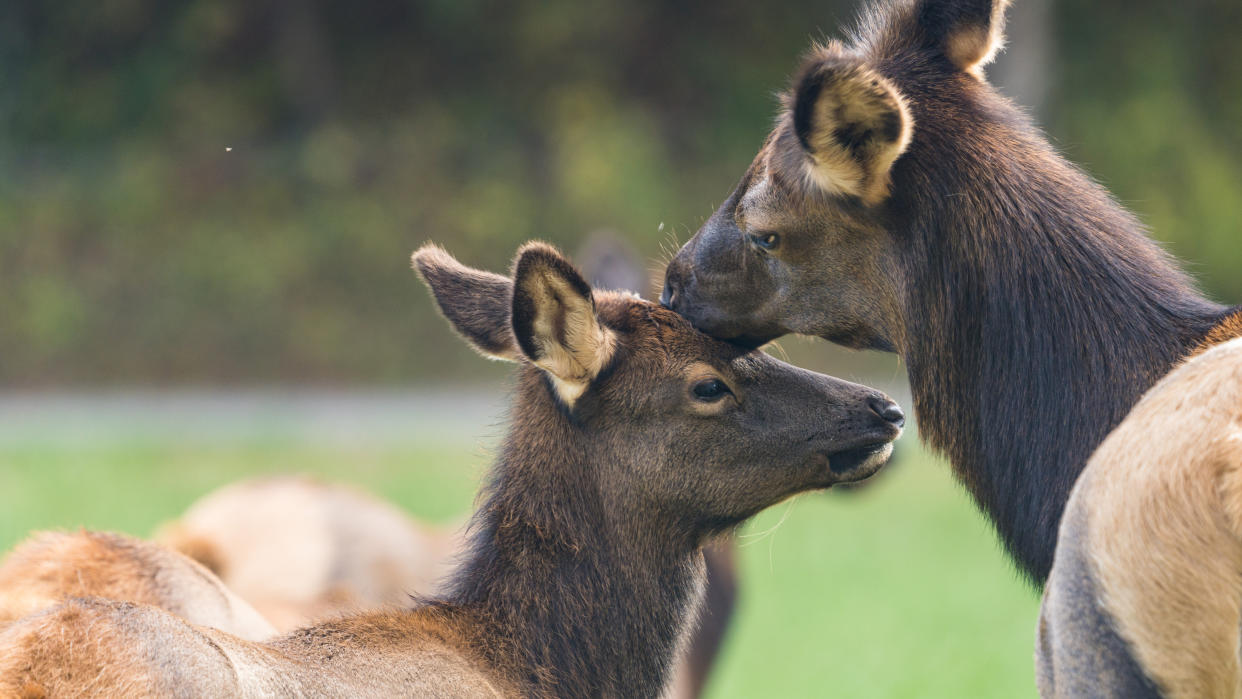Tourists chase baby elk at Estes Park and separate it from its mother

A group of tourists have been spotted chasing elk through Estes Park in Colorado and spooking calves until they end up separated from their mothers.
Estes Park is a pretty town that often serves as a base camp for people visiting nearby Rocky Mountain National Park, but is also a popular tourist destination in its own right. It's best known for its huge population of elk, with around 2,400 of the animals living in the Estes Valley.
The animals can be seen strolling throughout town (sometimes wandering into local businesses like gift shops and jerky stores), but visitors are warned to always give them a wide berth for their own safety, and that of the animals. Although they may seem calm at first, elk are wild animals and can be unpredictable. Males are most likely to be dangerous during the mating season (known at the rut) in the fall, while females are particularly defensive when protecting their calves in the spring and late summer.
This particular incident (which you can watch below) was captured by Colorado-based photographers Good Bull Outdoors and shared via Instagram account TouronsOfNationalParks, which calls out bad behavior at sites of natural beauty.
A post shared by @touronsofnationalparks
A photo posted by on
Although elk attacks are rare, several have been recorded in Estes Park over recent years, usually involving tourists who have wandered too close.
In 2019, two people were hurt after being charged by a bull elk in Estes Park. A woman was knocked over, and a man fell and hit his head while trying to flee. The incident happened just two days before the town's annual Elk Fest, which is a celebration of the animals involving live music, performances, and bugling contests.
In September 2017, an elk was euthanized after charging and injuring two women in the town.
"We need people to understand these are wild animals," Jennifer Churchill, spokesperson for Colorado Parks and Wildlife, told reporters at the time. "If they change their behavior, you’re too close. They’ll let you know [...] if they stop doing what they are doing, you’re too close."
For more advice, see our guide how to enjoy elk rutting season safely.
Best binoculars and monoculars: enjoy watching wildlife from a safe distance

